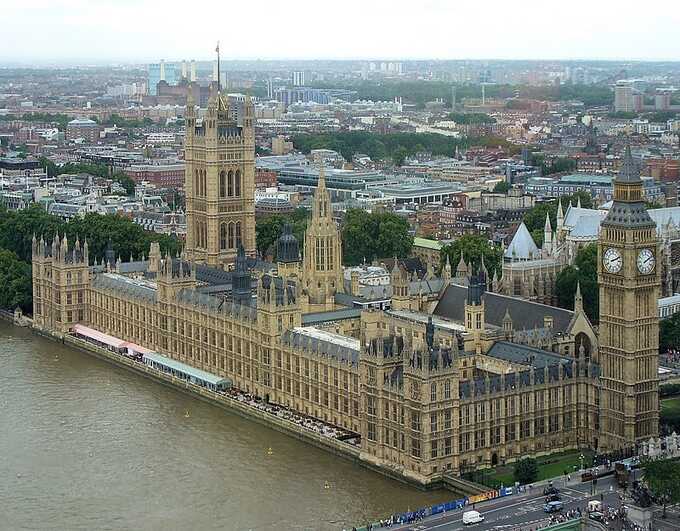Man arrested in connection with Westminster honeytrap case
A man has been arrested in connection with the Westminster "honeytrap" scandal.
Police arrested a man on suspicion of harassment and offences under the Online Safety Act in London on Wednesday.
Multiple victims were informed by the Metropolitan Police shortly afterwards.
Earlier this year a string of men, mostly working in politics, revealed that they had received unsolicited, flirtatious WhatsApp messages from people calling themselves "Charlie" or "Abi". In some cases explicit images were exchanged.
William Wragg, then an MP, resigned the Conservative whip after saying that he gave the phone numbers of fellow MPs to a man he met on a dating app because he was "scared".
Others targeted included the then-Conservative MP for Bosworth, Luke Evans, who said he had contacted the police after becoming "a victim of cyber-flashing and malicious communications".
In April the Met announced it was investigating reports of unsolicited messages being sent to MPs and others.
A spokesperson for the Metropolitan Police said: “On Wednesday, 26 June, police executed a warrant at an address in Islington.
"A man was arrested on suspicion of harassment and committing offences under the Online Safety Act. He was taken into custody where he remains.
"The arrest relates to an investigation being carried out by the Met’s Parliamentary Liaison and Investigation Team following reports of unsolicited messages sent to MPs and others.
The investigation remains ongoing.”
Police had first been made aware of the messages late in 2023, but news of them began to emerge publicly in April.
Following initial reports about the messages, Mr Wragg told The Times he had been chatting with someone on an app who subsequently asked him for the numbers of others.
"They had compromising things on me. They wouldn’t leave me alone... I gave them some numbers, not all of them."
He apologised for “my weakness” which he said had “caused other people hurt”.
Subsequently other politicians and political journalists spoke of their own experiences of receiving unwanted messages
The following week, Luke Evans, then Conservative MP for Bosworth, said he had been a “victim of cyber-flashing”.
As many as 20 people in political circles were thought to have received unsolicited messages.
Read more similar news:
Comments:
comments powered by Disqus


































